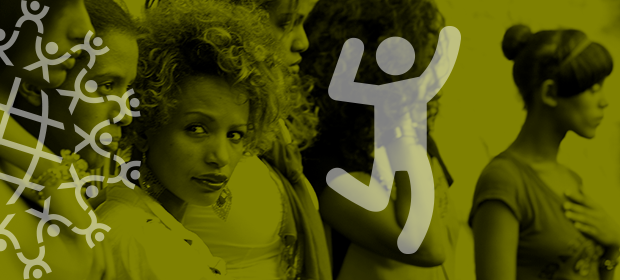Where We Work
See our interactive map


They're role models, advocates, and watchdogs. And they're making their expectations clear.
The designation of “youth ambassador” may have started as a simple title, but as I witnessed at the Civil Society for Family Planning (CS4FP) Regional Workshop this month, it has grown to symbolize a movement.
Since 2011, the CS4FP project has engaged dynamic, dedicated, impassioned young people from across francophone West Africa as family planning youth ambassadors. They’re tasked with educating and mobilizing their peers around reproductive health and family planning in particular—what it is, what it isn’t, and how it stands to influence their futures.
Family planning has real impact on economic growth and job creation—topics that speak directly to young people.
But these ambassadors also play another, less obvious role. Through events like this workshop, they educate and influence people in power, including government officials, civil society members, and religious leaders.
The impact of family planning goes far beyond greater health and well-being, civil society coalitions and youth ambassadors argue. It has real and lasting impact on economic growth and job creation—topics that speak directly to youth ambassadors, who are preparing to enter the workforce.
At the workshop (held in Dakar, Senegal, November 1-3), the youth ambassadors from Benin, Burkina Faso, Mali, Niger, and Senegal made clear their roles in achieving both the Ouagadougou Partnership’s objective (to accelerate progress in the use of family planning) and the demographic dividend in their countries.
They will be role models in their communities.
They will advocate to decision-makers to make their priorities heard.
And they will participate in their countries’ civil society coalitions as watchdogs, holding governments accountable for the family planning commitments they made to FP2020 and the Ouagadougou Partnership.
The ambassadors’ ideas were inspiring and unexpected. I particularly liked one about partnering with the Senegalese Journal Rappé—where rap artists present the news in French, Wolof, and English to some 45,000 viewers per week online—to develop a program centered on family planning.
As I listened to the youth ambassadors correct the moderators’ assumptions and clarify the real challenges they and their peers face, it struck me that only people in their age group truly know what it is to be young in 2016. Perhaps by implementing family planning policies and programs designedby and with youth—rather than for them—we stand to reach an even greater number of women and girls who want to use contraceptives, but are not.
At the closing ceremony, youth ambassador Sorofing Traoré of Mali called on her government to recognize that in a region where those under 25 make up over 60% of the population, her voice is indispensable and her opinion counts. She and her fellow youth ambassadors are demanding that no-cost contraceptives be available for them and their peers. They are striving to be stronger leaders and communicate more effectively, and are calling on civil society coalitions for support.
Youth ambassadors from across francophone West Africa are more engaged than ever.
Youth will take center stage at the upcoming Ouagadougou Partnership 5th Annual Meeting, December 12–14 in Abidjan, Cote d’Ivoire. The meeting’s theme, Promouvoir la contraception c’est garantir un meilleur avenir des jeunes (Promote Contraception to Guarantee a Better Future for Youth), will thrust them and the challenges they face in accessing family planning into the spotlight.
Sorofing and young people from all nine Ouagadougou Partnership countries will have the ears of international donors, implementing partners, and European and African parliamentarians. They will have the opportunity to present an advocacy tool they developed in collaboration with PRB, discuss obstacles they face in accessing family planning services, and participate in a live debate on youth issues with a religious leader, government representative, and European ambassador representative.
Youth ambassadors from across francophone West Africa are now more engaged in increasing access to and use of family planning than ever, and they are speaking with stronger and more empowered voices. In Abidjan, I’ll join 300 representatives from governments, donor organizations, and implementing partners from around the world to hear what they have to say.
And we’ll be listening.
IntraHealth International leads the Ouagadougou Partnership Coordination Unit with funding from the William and Flora Hewlett Foundation and the Bill & Melinda Gates Foundation. IntraHealth’s work with CS4FP is funded by the William and Flora Hewlett Foundation. CS4FP works with coalitions of civil society organizations in West Africa to bring family planning to the forefront of the political agenda. Their advocacy efforts are crucial to reaching an additional 2.2 million new users of modern contraceptives by 2020, the ambitious objective of the Ouagadougou Partnership’s Acceleration Phase.
Get the latest updates from the blog and eNews




